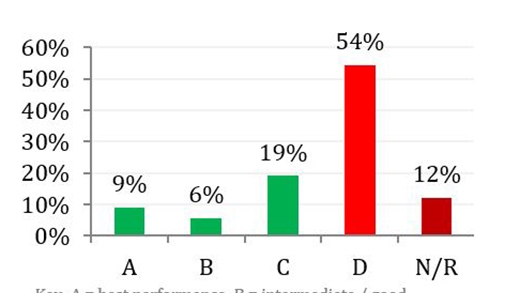Debt Management Plan Singapore: Secure Your Economic Future easily
Debt Management Plan Singapore: Secure Your Economic Future easily
Blog Article
The Comprehensive Overview to Developing a Reliable Financial Debt Monitoring Plan for Conquering Financial Obstacles
Navigating financial obstacles demands a calculated technique to financial debt management, highlighted by a thorough understanding of one's monetary landscape. By carefully evaluating earnings, costs, and impressive financial obligations, people can develop a clear structure for their monetary goals.
Comprehending Your Financial Circumstance
Lots of individuals discover themselves unsure about their economic standing, which can make complex the debt management procedure. A clear understanding of one's financial scenario is important for efficient debt monitoring. This includes performing an extensive assessment of income, costs, liabilities, and assets. A comprehensive evaluation helps in determining real monetary image and highlights locations that need instant attention.
To begin, individuals need to list all incomes, including salaries, sideline, and passive earnings streams. Next, an in-depth account of monthly costs must be documented, classifying them into repaired and variable expenses. This enables an exact estimation of disposable income, which is crucial in determining just how much can be designated toward financial obligation repayment.
Comprehending one's economic situation not just aids in effective financial debt management however likewise lays a strong foundation for future economic preparation. This step is essential in guaranteeing that individuals can navigate their economic obstacles much more properly and work towards attaining lasting security.
Setting Clear Financial Goals
Establishing clear monetary objectives is a crucial next step after gaining a thorough understanding of your economic situation. These objectives serve as a roadmap, leading your efforts and decisions as you function towards achieving economic stability.
Make use of the clever requirements-- Specific, Quantifiable, Attainable, Relevant, and Time-bound-- to guarantee your goals are well-defined. As an example, instead of stating, "I wish to save more money," specify, "I will conserve $5,000 for a reserve within the next year." This clarity not only enhances emphasis yet likewise enables much better tracking of your progress.
Additionally, prioritize your objectives according to their seriousness and importance. This prioritization assists in guiding your sources properly, ensuring that necessary goals are attended to initially. By establishing clear financial objectives, you produce an organized approach to handling your debts and navigating financial challenges, inevitably placing on your own for a more secure financial future.
Developing a Spending Plan Plan
Developing a budget strategy is vital for handling your financial resources properly and making certain that you remain on track towards attaining your financial objectives. A well-structured spending plan offers as a roadmap, directing your investing and saving choices while aiding you determine areas for enhancement.
To create an effective budget strategy, begin by detailing all incomes, including income, perks, and any kind of side earnings. Next off, classify your costs right into repaired and variable expenses. Fixed expenses, such as rent or home mortgage repayments, stay consistent, while variable expenses, like groceries and enjoyment, can vary.
As soon as you have a clear photo of your earnings and expenditures, allocate funds to every group based upon your economic priorities. Make certain that your budget plan permits financial savings and debt settlement, and think about making use of the 50/30/20 guideline-- 50% for requirements, 30% for wants, and 20% for cost savings and financial debt.
Review your spending plan month-to-month to readjust for any type of adjustments in revenue or costs, and Look At This track your costs to make certain adherence (debt management plan singapore). By dedicating to a disciplined budgeting procedure, you can get control over your financial resources and pursue financial security

Checking Out Financial Obligation Repayment Methods
Debt payment strategies are essential for reclaiming financial stability and decreasing the concern of impressive responsibilities. Numerous methods can be used, each created to properly deal with the special scenarios of individuals facing financial obligation challenges.
One prominent method is the debt snowball approach, which focuses on repaying the tiniest financial debts initially. This approach provides psychological motivation as individuals experience quick victories, cultivating a sense of success. Alternatively, the financial debt avalanche technique focuses on repaying debts with the highest possible rate of interest initially, ultimately decreasing the total interest paid with time.
An additional effective approach is debt consolidation, which involves integrating multiple debts into a single financing with a reduced rate of interest. This not just simplifies the settlement procedure yet can also reduce monthly settlements. In addition, negotiating with creditors for more beneficial terms, such as reduced passion rates or extensive repayment durations, can relieve monetary strain.
Keeping Financial Self-control
Effective financial obligation settlement techniques pivot not only on the approaches selected but also on the technique exercised throughout the process. Maintaining financial discipline is important for ensuring that people stick to their financial obligation monitoring plans and attain their financial goals. This entails developing an organized spending plan that focuses on debt repayment while enabling needed living expenditures.
One efficient approach to growing self-control is to set clear, possible objectives. People need to break down their general debt into smaller, manageable targets, which can aid cultivate a sense of accomplishment as each goal is met. Furthermore, on a regular basis evaluating one's monetary situation and adjusting the budget as required can enhance commitment to the strategy.

Ultimately, keeping financial technique calls for consistent here effort and mindfulness (debt management plan singapore). By prioritizing financial debt settlement and embracing sensible spending practices, people can browse their financial difficulties efficiently and lead the way for a much more secure financial basics future
Conclusion
In final thought, developing an efficient financial debt management strategy necessitates a detailed understanding of one's financial scenario, paired with the solution of clear, achievable goals. By adhering to these concepts, individuals can significantly enhance their capacity to handle financial debt and accomplish economic health.
Navigating monetary obstacles requires a strategic approach to debt monitoring, emphasized by a comprehensive understanding of one's financial landscape. Understanding one's economic situation not only aids in effective financial obligation monitoring but also lays a strong foundation for future financial planning.Establishing clear monetary objectives is a crucial following action after acquiring an extensive understanding of your monetary scenario. By establishing clear monetary goals, you produce a structured technique to handling your financial debts and browsing financial difficulties, inevitably positioning yourself for an extra secure economic future.

Report this page